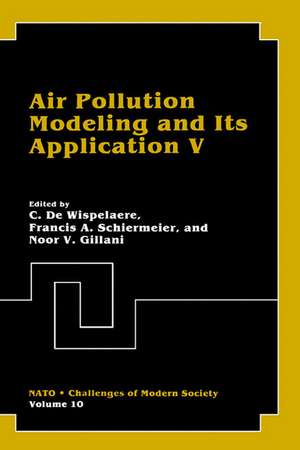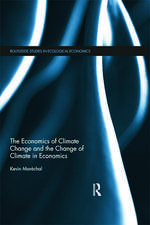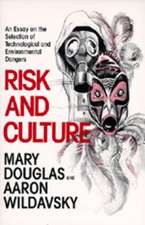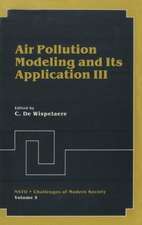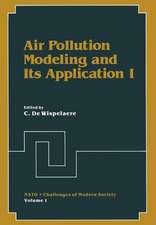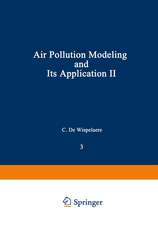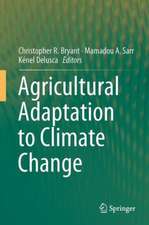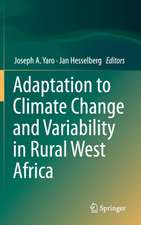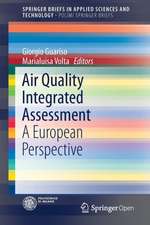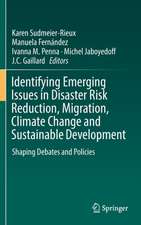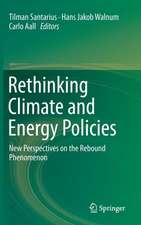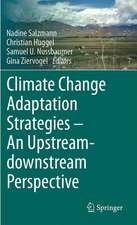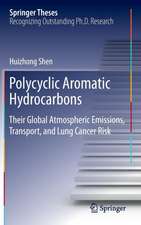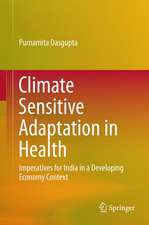Air Pollution Modeling and Its Application V: Nato - Challenges of Modern Society, cartea 10
Frank A. Schiermeier Editat de C. De Wispelaere Noor V. Gillanien Limba Engleză Hardback – 31 dec 1986
| Toate formatele și edițiile | Preț | Express |
|---|---|---|
| Paperback (1) | 1245.03 lei 43-57 zile | |
| Springer Us – 22 mai 2013 | 1245.03 lei 43-57 zile | |
| Hardback (1) | 1246.63 lei 43-57 zile | |
| Springer Us – 31 dec 1986 | 1246.63 lei 43-57 zile |
Din seria Nato - Challenges of Modern Society
-
 Preț: 401.03 lei
Preț: 401.03 lei -
 Preț: 421.05 lei
Preț: 421.05 lei -
 Preț: 388.34 lei
Preț: 388.34 lei - 5%
 Preț: 365.10 lei
Preț: 365.10 lei - 18%
 Preț: 1257.83 lei
Preț: 1257.83 lei - 5%
 Preț: 406.94 lei
Preț: 406.94 lei - 18%
 Preț: 1258.46 lei
Preț: 1258.46 lei -
 Preț: 418.32 lei
Preț: 418.32 lei - 5%
 Preț: 1418.48 lei
Preț: 1418.48 lei - 18%
 Preț: 953.20 lei
Preț: 953.20 lei -
 Preț: 379.68 lei
Preț: 379.68 lei -
 Preț: 418.76 lei
Preț: 418.76 lei - 18%
 Preț: 1249.14 lei
Preț: 1249.14 lei - 18%
 Preț: 957.75 lei
Preț: 957.75 lei -
 Preț: 434.34 lei
Preț: 434.34 lei -
 Preț: 398.15 lei
Preț: 398.15 lei -
 Preț: 424.15 lei
Preț: 424.15 lei -
 Preț: 405.66 lei
Preț: 405.66 lei -
 Preț: 430.69 lei
Preț: 430.69 lei -
 Preț: 430.47 lei
Preț: 430.47 lei -
 Preț: 391.99 lei
Preț: 391.99 lei
Preț: 1246.63 lei
Preț vechi: 1520.28 lei
-18% Nou
Puncte Express: 1870
Preț estimativ în valută:
238.62€ • 259.28$ • 200.57£
238.62€ • 259.28$ • 200.57£
Carte tipărită la comandă
Livrare economică 21 aprilie-05 mai
Preluare comenzi: 021 569.72.76
Specificații
ISBN-13: 9780306422935
ISBN-10: 030642293X
Pagini: 774
Ilustrații: XII, 774 p.
Dimensiuni: 156 x 234 x 41 mm
Greutate: 1.28 kg
Ediția:1986
Editura: Springer Us
Colecția Springer
Seria Nato - Challenges of Modern Society
Locul publicării:New York, NY, United States
ISBN-10: 030642293X
Pagini: 774
Ilustrații: XII, 774 p.
Dimensiuni: 156 x 234 x 41 mm
Greutate: 1.28 kg
Ediția:1986
Editura: Springer Us
Colecția Springer
Seria Nato - Challenges of Modern Society
Locul publicării:New York, NY, United States
Public țintă
ResearchCuprins
Role of Atmospheric Models in Air Pollution Policy and Abatement Strategies.- Evaluating strategies for controlling acidification in Europe with a regional scale air quality model.- The feasibility and effectiveness of summer season or episodic SO2 emission controls to reduce acidic deposition in eastern North America.- Climatological variability in the evaluation of cost effectiveness of emission control strategies to reduce acid deposition.- Regional oxidant modeling of the Northeast US.- Technical uncertainty in quantitative policy analysis — A sulfur air pollution example.- The determination of air pollution abatement in Milan urban area.- Critical Air Quality or Worst-Case Meteorological Scenarios.- Meteorological events that produced the highest ground-level concentrations during complex terrain/field experiments.- Avacta II model simulations of worst-case air pollution scenarios in Northern Italy.- On-line wind field calculations for routine and emergency response applications.- Report on the study to evaluate air pollution episodes and intermittent control measure.- Planetary Boundary Layer and Turbulence Parameterization in Atmospheric Dispersion Models.- Parameterization of the atmospheric boundary layer for air pollution dispersion models.- Atmospheric dispersion modeling based upon boundary layer parameterization.- Modeling the diurnal variation of meteorological variables within the boundary layer — Preliminary comparison results «.- Statistical models of atmospheric dispersion.- Use of meteorological data to parameterize statistical dispersion models.- Atmospheric diffusion in the range 20 to 2000 Kilometers.- Short range dispersion within a system of regular valleys.- Determination of the relations governing the evolution of the standard deviationsof the distribution of pollution.- Modeling of turbulence in stable layers and forecasting of pollution episodes.- Formation and Transport of Ozone and Aerosols in the Polluted Atmosphere.- An examination of the transport of ozone and its precursors in rural areas of the Eastern United States.- The transport of reactive pollutants within local circulations.- Modeling sulfur air quality and deposition in pristine areas.- Technical considerations in regional aerosol modeling.- First results of the data processing of the VIth European campaign on remote-sensing of air pollution.- A wind-field model for interpretation of remote-sensing data in a complex area.- Performance Evaluation of Atmospheric Dispersion/Transformation/Removal Models.- Expectations and experience in diffusion model validation.- Issues, design and interpretation of performance evaluations: ensuring the emperor has clothes.- Assessing the performance level of air quality models.- Simple statistical methods for comparative evaluation of air quality models.- The Danish gaussian air pollution model (OML): description, test and sensitivity analysis in view of regulatory applications.- Regional air quality model assessment and evaluation.- The use of acid deposition models in designing long-range tracer experiments.- The episodicity of statistical long range transport models.- South central coast cooperative aerometric monitoring program — An integrated atmospheric pollutant monitoring program for California outer continental shelf (OCS).- Application of linked three-dimensional PBL and dispersion models to New-York city.- A reentry plume fumigation model in a lakeshore environment.- Atmospheric dispersion around an isolated hill — Programme and preliminary results.- Initialization of the euler model“modis” with field data from the “epri plume model validation project”.- Concentration statistics by wind direction for 1976 St Louis SO2 measurements and model estimates.- Field experiments with tracer and tetroons to investigate atmospheric dispersion in the mesoscale range.- Dispersion Modeling of Hazardous Materials and Toxic Pollutants.- Dispersion modeling of hazardous materials in the wind tunnel.- Heavy gas dispersion modelling.- Physical and mathematical modelling of heavy gas dispersion — Accuracy and reliability.- Evaluation of Source strength and dispersion model predictions with data from large nitrogen tetroxide field experiments.- Comparison between data from the heavy gas dispersion experiments at thorney island and predictions of simple models.- A study of heavy gas effects on the atmospheric dispersion of dense gases.- A three-dimensional numerical model for the dispersion of heavy gases over complex terrain.- Participants.- Author’s Index.
